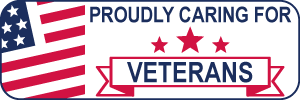How to coronavirus-proof your home by CNN Scottie Andrews
Life under coronavirus means staying at home as much as possible — but you’ll likely need to make a trip to the grocery store or pharmacy at some point. Download or print this tip sheet to make sure you don’t bring the virus back home with you.
Note: Recommendations for Covid-19 may change as officials learn more, so monitor your local health department and the Centers for Disease Control and Prevention for updates.
Make a game plan
- Designate one person to be your errand-runner to limit your outside exposures
- Set up a disinfecting station — an area outside your home or in a room with low foot traffic where you can disinfect packaged food
When you’re out
- Avoid coming within less than six feet of others
- Wipe handles on carts or baskets while shopping
- You don’t have to have gloves or a mask — just wash your hands frequently while you’re out and avoid touching your face
When you get back
- Wash your hands with soap and water for 20 seconds
- Disinfect takeout boxes and packaged foods at your disinfecting station
- Thoroughly wash produce before putting it in your kitchen
Disinfect
- Disinfect everything you touch — doorknobs, light switches, keys, phone, keyboards, remotes, etc.
- Use EPA-approved disinfectants (these include Clorox Disinfecting Wipes and certain Lysol sprays) and leave surfaces wet for 3-5 minutes
Delivery
- Ask workers to drop deliveries off on your doorstep or an area of your complex
- If they need you to come to the door, keep six feet of distance
- Pay and tip online when possible
- After you pick up mail from your mailbox, wash your hands
Laundry
- Wash clothes, towels and linens regularly on the warmest setting
- Disinfect your laundry hamper, too, or place a removable liner inside it
- Don’t shake dirty laundry to avoid dispersing the virus in the air
Guests
- You shouldn’t allow guests over right now
- If you need to house a family member or friend, avoid shared living spaces as much as you can
- If they need to enter shared living spaces, ask them to keep six feet of distance
If someone in your home gets sick
- First, consult your doctor
- Isolate them in another room and ask them to use a separate restroom
- Disinfect frequently touched surfaces every day
- Avoid sharing items with them
- Wear gloves when washing their laundry
- Continue to wash your hands frequently
- Ask them to wear a face mask if they have one
Supplies you’ll need
- EPA-approved disinfectants
- If you don’t have disinfectants, make a bleach solution:
- Mix four teaspoons bleach per quart of water; or
- Use a 70% alcohol solution
- Laundry detergent
- Trash bags
- Prescription medicines (you can mail order these)
- Canned foods — fruits, veggies, beans
- Dry goods — breads, pastas, nut butters
- Frozen foods — meats, veggies, fruits
Pets
- Supervise your pet in your backyard
- It’s OK to play with them outside — just keep your distance from other humans
- If you’re sick, ask someone you live with to take care of them while you recover
- If you must care for them while you’re sick, wash your hands frequently



